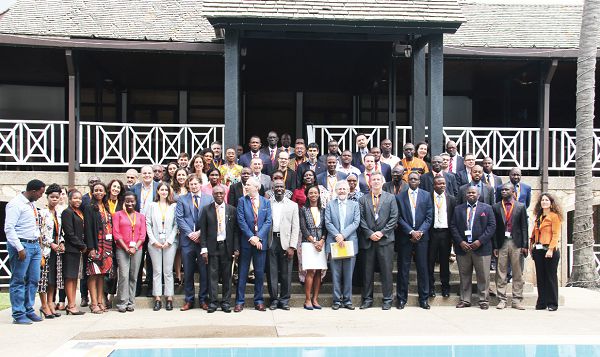
Streamline remittances to better impact development, IOM tells African countries
The International Organisation for Migration (IOM) has called on countries in Africa to harness the flow of remittances to stimulate development.
The Regional Director of the IOM Office for East and the Horn of Africa, Mr Jeffrey Labovitz, said international remittances had been weighing high on the global policy agenda in recent times, as they were more than three times the size of official development assistance (ODA), otherwise known as donor funding.
According to a new World Bank report, remittances to Sub-Saharan Africa grew by 11 per cent from $34 billion in 2016 to $38 billion in 2017, a trend the report predicts will continue to grow this year.
The report estimates that almost 75 per cent of remittances are spent on consumption, which greatly benefits the receiving households and communities, yet more could be done to maximise the remaining 25 per cent through fostering financial inclusion and promoting initiatives that will help people manage the funds to harness development impacts of remittances.
At a three-day regional thematic meeting on remittances in Sub-Saharan Africa, Mr Labovitz said excluding those from China, remittances were also significantly larger than foreign direct investments in low and middle-income countries (LMICs).
The meeting was to create a platform for information sharing and exchange of learning for 80 participants involved in IOM’s African, Caribbean and Pacific and European Union Migration Action, including migration experts and representatives from African Caribbean Pacific (ACP) governments, regional organisations, the European Union, UN agencies and NGOs working in the area of remittances and diaspora mobilisation.
Transfer cost
The discussions will also generate recommendations for the Sub-Saharan region and establish links between the outcomes of the ACP-EU Migration Action programme and processes relevant to the ACP-EU Dialogue on Migration and Development at the regional and global levels.
Mr Labovitz said in spite of the increase, Sub-Saharan Africa remained the most expensive place in the world to send money, with an average cost of 9.4 per cent of the transfer amount and that was way above the Sustainable Development Goal (SDG) target of reducing to less than three per cent, the transaction costs of migrant remittances by 2030.
Migration issues
The Head of the Delegation of the European Union, Ms Diana Acconcia, said migration issues were of the greatest importance for both African and European countries as the 2030 Agenda and the European Consensus on Development had confirmed that migration was part and parcel of global and European development policy.
“Africa and Europe Alliance for Sustainable Investment and Jobs is an essential part of the joint approach to migration, a shared responsibility for addressing the root causes of irregular migration, effectively managing borders, preventing and fighting migrant smuggling and trafficking of human beings,” she said.
Ms Acconcia said Ghana and the EU had an excellent cooperation on migration management within the global and regional frameworks, such as the global compact for safe, orderly and regular migration, among others.
She said the EU had been supporting African countries in the development of diaspora engagement policies and the commitment of the diaspora in the development of their countries of origin and commended Ghana for establishing a Diaspora Affairs Office.
Ghana
For his part, the Director of the Diasporan Affairs Office, Office of the President, Mr Akwasi Awuah Ababio, said Ghana recorded foreign remittances of $5 billion in 2016, which was estimated to be three times more than foreign direct investments.
He said reducing the cost of remittances to Ghana was very significant to the government which was bent on eliminating corridors that induced costs.
Mr Ababio said the government was also committed to harnessing the potential of remittances for the development of the country.
